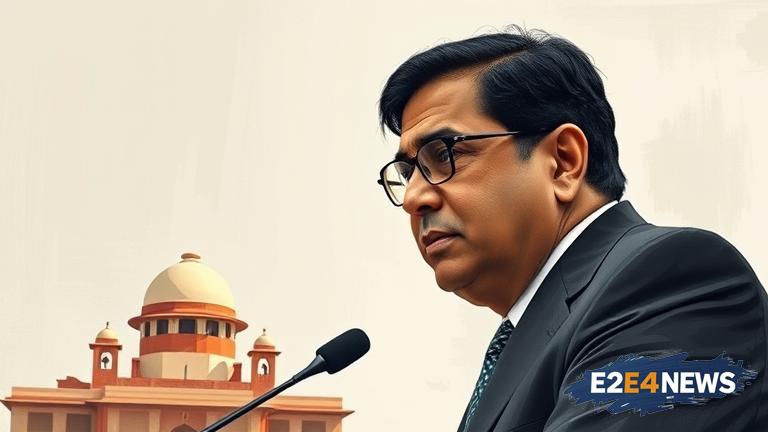The Vice President of India, Jagdeep Dhankhar, has recently expressed his concerns regarding the Supreme Court’s decision to strike down the National Judicial Appointments Commission (NJAC) Act. The NJAC Act was enacted in 2014 to reform the process of appointing judges to the higher judiciary in India. However, the Supreme Court declared the Act unconstitutional in 2015, citing that it interfered with the independence of the judiciary. Dhankhar has questioned the Court’s decision, arguing that it has led to a situation where the judiciary is not accountable to anyone. He has also pointed out that the Court’s decision has resulted in the judiciary becoming a ‘closed shop’, where judges are appointed by a collegium of existing judges without any external oversight. The Vice President’s comments have sparked a debate about the role of the judiciary in India’s governance and the need for greater transparency and accountability in the appointment of judges. The NJAC Act was introduced to address concerns about the lack of transparency and accountability in the collegium system of appointing judges. The Act provided for a commission that would comprise of the Chief Justice of India, two senior-most judges of the Supreme Court, the Law Minister, and two eminent persons to be appointed by the President. However, the Supreme Court struck down the Act, citing that it would compromise the independence of the judiciary. The Court’s decision has been criticized by many, who argue that it has led to a lack of diversity and representation in the higher judiciary. The Vice President’s comments have also been seen as a reflection of the growing concern about the judiciary’s role in India’s governance. Many have argued that the judiciary has overstepped its bounds and is interfering in the functioning of the executive and the legislature. The debate about the NJAC Act and the Supreme Court’s decision is likely to continue, with many calling for greater transparency and accountability in the appointment of judges. The issue has also raised questions about the balance of power between the different branches of government in India. The Vice President’s comments have been welcomed by many, who see it as an opportunity to re-examine the role of the judiciary and the need for reforms. However, others have criticized the Vice President’s comments, arguing that they are an attack on the independence of the judiciary. The issue is likely to be debated in the coming days, with many calling for a re-examination of the NJAC Act and the Supreme Court’s decision. The Vice President’s comments have also highlighted the need for a national debate about the role of the judiciary in India’s governance. The debate is likely to involve all stakeholders, including the government, the judiciary, and civil society. The issue has also raised questions about the need for greater transparency and accountability in the functioning of the judiciary. The Vice President’s comments have been seen as a call for reforms, which would ensure that the judiciary is more representative and accountable to the people. The debate about the NJAC Act and the Supreme Court’s decision is likely to be a long-drawn one, with many arguing that it is essential to strike a balance between the independence of the judiciary and the need for accountability and transparency.
